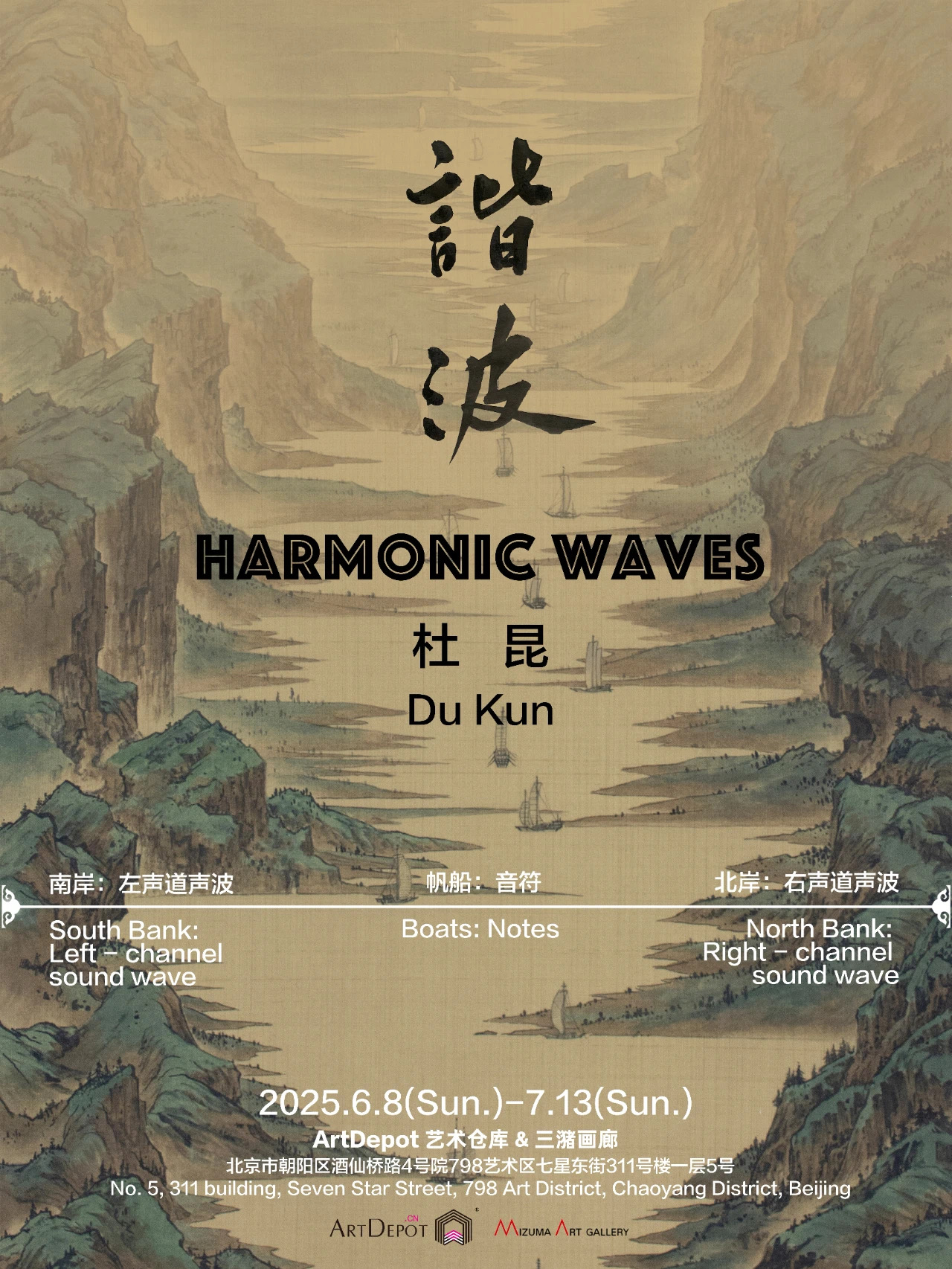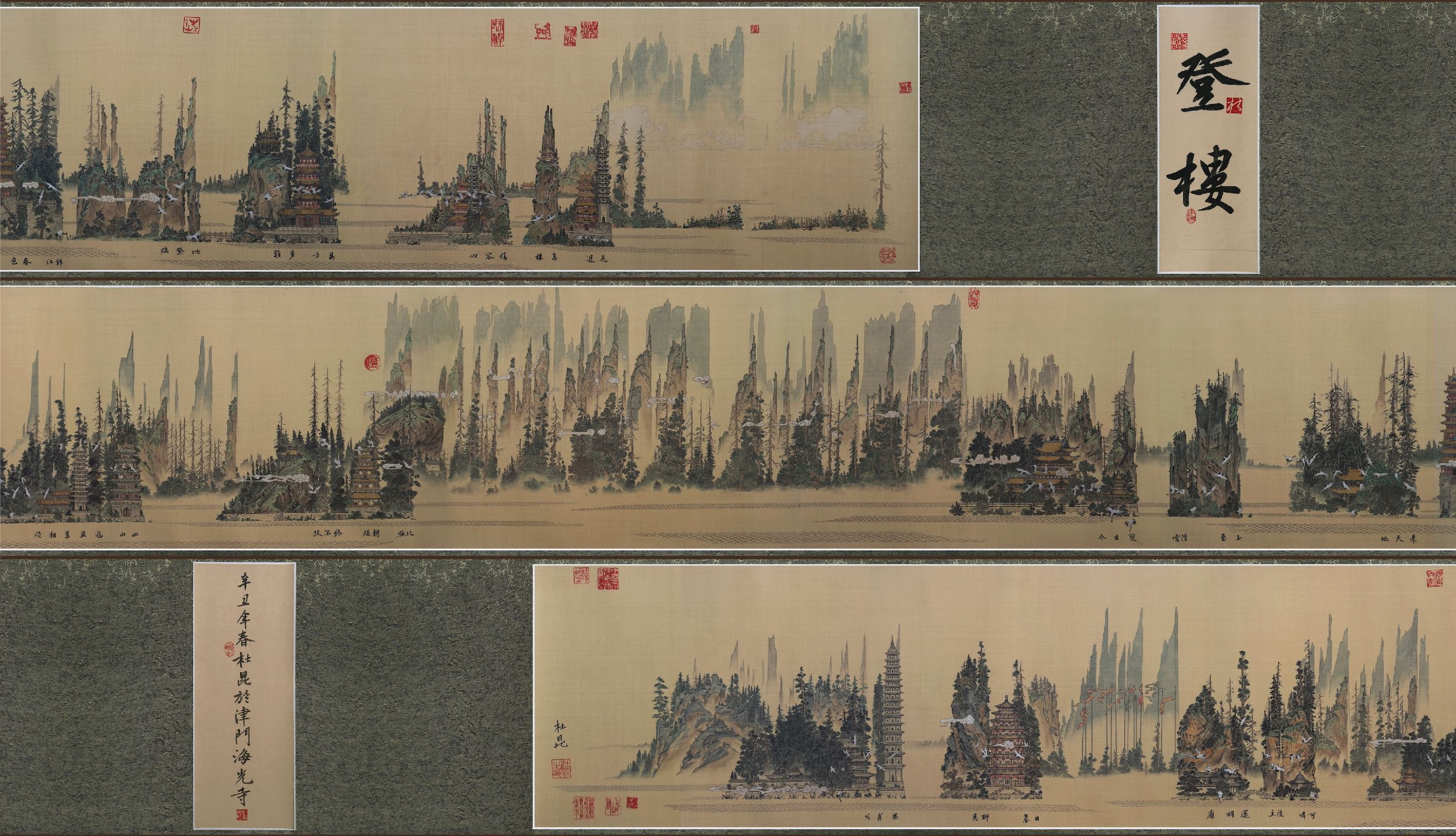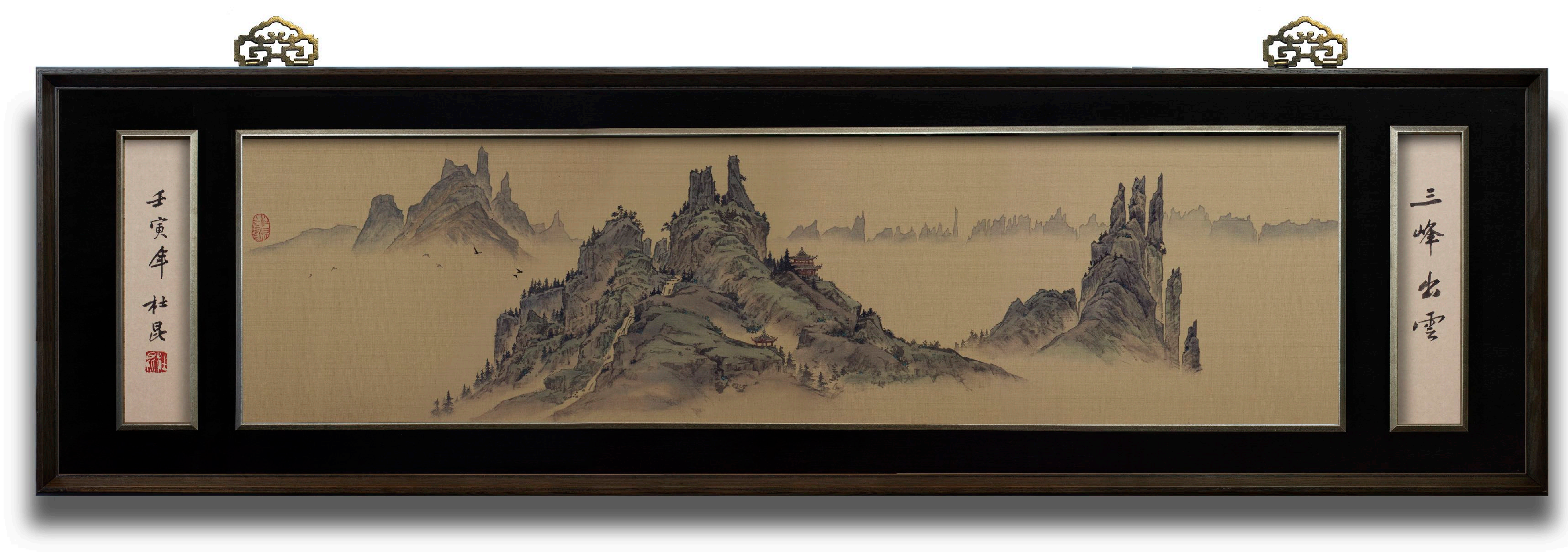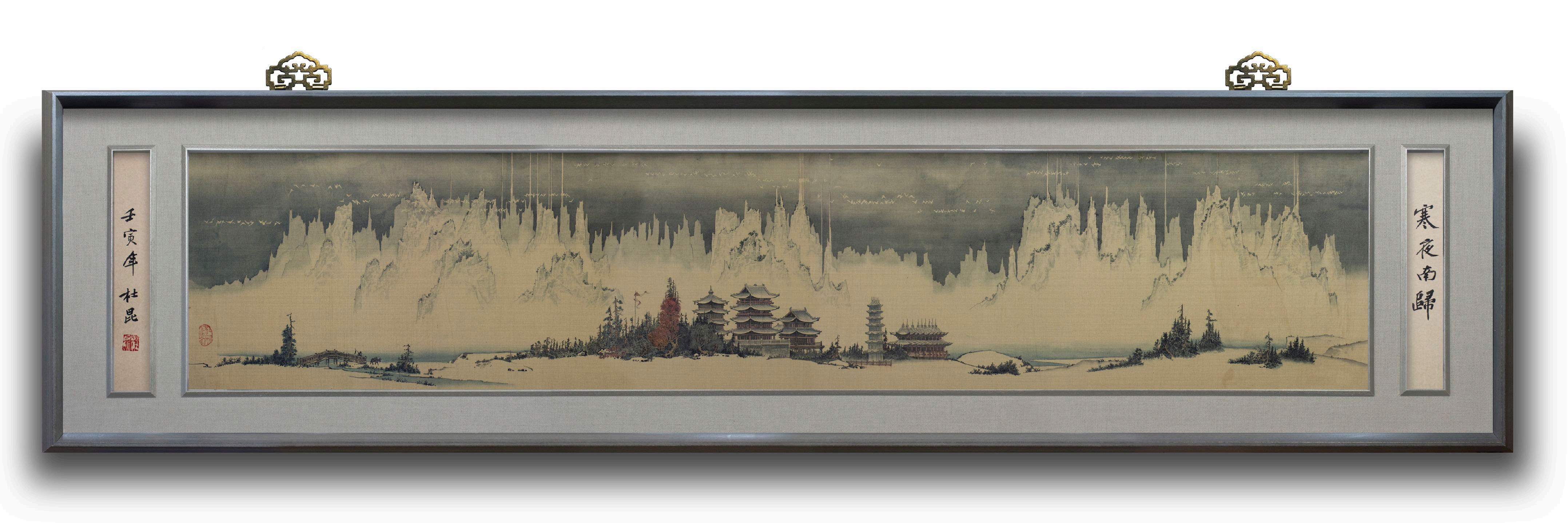


The paintings presented in long scrolls not only express the expansion of space but also have the characteristics of time flow. Large-scale landscape paintings depict the changes of things with the seasons of spring, summer, autumn and winter, or with the progress of the story, and the scenes also change accordingly. Therefore, music, as an art of time, is extremely naturally visualized by artists through long scroll creation.

Careful appreciation of the exhibited works reveals some details, such as vertically divided mountains, interspersed white clouds, the reflection of trees on the lake... These elements together create a rhythmic and recurring rhythm, forming a work completely different from traditional Chinese paintings. When explaining these works, Du Kun mentioned the dramatic conflict between "noise" and "stillness", as well as various contradictions established by both sides, which are integrated after collision. This is another group of paintings with the central theme of sublating tradition and transcending opposition. "Painting and music are like two people from different countries speaking different languages, who have found a special way to communicate," he said in the above interview.

From the perspective of painting, this series of works can be said to combine the visual concepts of color and shape with the time concepts of music and performance. The form of expression produced by combining all these elements is no longer (pure) painting or music.

It is a hymn to the original reality, that is, the world before being instilled with various knowledges. They are the artist's proof of his own existence and a way to depict the self. It can be seen that his worldview has gradually changed from a destructive, apocalyptic image to a constructive and positive vision. In his early cityscapes, the sky was mostly gray and eschatological, while in the "Temple Portrait" series, it is a clear blue sky.
In a 2016 interview, he said, "Putting opposing sides on an equal stage, making them have a dialogue, and expressing it in a poetic way... Artists should not only raise questions but also dramatize them." Starting from depicting the unintelligible mystery and tragedy of the world with an intuition far beyond logic, Du Kun created a batch of surrealist paintings like messages that gods or supernatural forces want to convey through his hands. However, now he is committed to reconstructing his own world. After all, today he stands on the side of humanity, observing the future created by human activities. It seems that after the end of the world, a brand-new world is emerging here.
